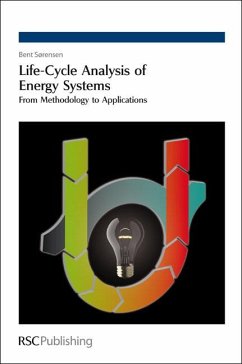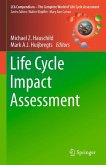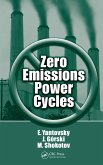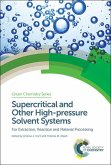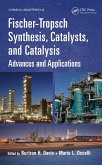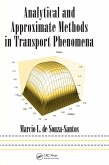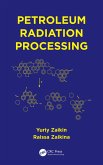Life-cycle assessment of new energy solutions plays an important role in discussions about global warming mitigation options and the evaluation of concrete energy production and conversion installations.
This book starts by describing the methodology of life-cycle analysis and life-cycle assessment of new energy solutions. It then goes on to cover, in detail, a range of applications to individual energy installations, national supply systems, and to the global energy system in a climate impact context. Coverage is not limited to issues related to commercial uses by consultants according to ISO norms. It also emphasizes life-cycle studies as an open-ended scientific discipline embracing economic issues of cost, employment, equity, foreign trade balances, ecological sustainability, and a range of geo-political and social issues.
A wealth of applications are described and a discussion on the results obtained in each study is included. Example areas are fossil and nuclear power plants, renewable energy systems, and systems based on hydrogen or batteries as energy carriers. The analysis is continued to the end-users of energy, where energy use in transportation, industry and home are scrutinized for their life-cycle impacts. Biofuel production and the combustion of firewood in home fireplaces and stoves are amongst the issues discussed.
A central theme of the book is global warming. The impacts of greenhouse gas emissions are meticulously mapped at a depth far beyond that of the IPCC reports. A novel and surprising finding is that more lives will be saved than lost as a direct consequence of a warmer climate. After a 2ºC increase in temperature, the reduction in death rates in areas with cold winters would outweigh the increase in the death rates in hot climates. However, this is only one of several impacts from greenhouse gases, and the remaining ones are still overwhelmingly negative. The fact that some population groups may benefit from higher temperatures (notably the ones most responsible for greenhouse gas emissions) whilst others (who did not contribute much to the problem) suffer is one of the main points of the book.
The book is suitable as a university textbook and as a reference source for engineers, managers and public bodies responsible for planning and licensing.
This book starts by describing the methodology of life-cycle analysis and life-cycle assessment of new energy solutions. It then goes on to cover, in detail, a range of applications to individual energy installations, national supply systems, and to the global energy system in a climate impact context. Coverage is not limited to issues related to commercial uses by consultants according to ISO norms. It also emphasizes life-cycle studies as an open-ended scientific discipline embracing economic issues of cost, employment, equity, foreign trade balances, ecological sustainability, and a range of geo-political and social issues.
A wealth of applications are described and a discussion on the results obtained in each study is included. Example areas are fossil and nuclear power plants, renewable energy systems, and systems based on hydrogen or batteries as energy carriers. The analysis is continued to the end-users of energy, where energy use in transportation, industry and home are scrutinized for their life-cycle impacts. Biofuel production and the combustion of firewood in home fireplaces and stoves are amongst the issues discussed.
A central theme of the book is global warming. The impacts of greenhouse gas emissions are meticulously mapped at a depth far beyond that of the IPCC reports. A novel and surprising finding is that more lives will be saved than lost as a direct consequence of a warmer climate. After a 2ºC increase in temperature, the reduction in death rates in areas with cold winters would outweigh the increase in the death rates in hot climates. However, this is only one of several impacts from greenhouse gases, and the remaining ones are still overwhelmingly negative. The fact that some population groups may benefit from higher temperatures (notably the ones most responsible for greenhouse gas emissions) whilst others (who did not contribute much to the problem) suffer is one of the main points of the book.
The book is suitable as a university textbook and as a reference source for engineers, managers and public bodies responsible for planning and licensing.
Dieser Download kann aus rechtlichen Gründen nur mit Rechnungsadresse in A, D ausgeliefert werden.

